Abarth 500 595 695 vs Jeep Avenger - Differences and prices compared
Compare performance (155 HP vs 156 HP), boot space and price (32600 £ vs 21900 £ ) at a glance. Find out which car is the better choice for you – Abarth 500 595 695 or Jeep Avenger?
Costs and Efficiency:
Looking at overall running costs, both models reveal some interesting differences in everyday economy.
Jeep Avenger has a decisively advantage in terms of price – it starts at 21900 £ , while the Abarth 500 595 695 costs 32600 £ . That’s a price difference of around 10620 £.
In terms of energy consumption, the advantage goes to the Jeep Avenger: with 15.50 kWh per 100 km, it’s to a small extent more efficient than the Abarth 500 595 695 with 17.10 kWh. That’s a difference of about 1.60 kWh.
As for electric range, the Jeep Avenger performs noticeable better – achieving up to 400 km, about 135 km more than the Abarth 500 595 695.
Engine and Performance:
Power, torque and acceleration say a lot about how a car feels on the road. This is where you see which model delivers more driving dynamics.
When it comes to engine power, the Jeep Avenger has a barely noticeable edge – offering 156 HP compared to 155 HP. That’s roughly 1 HP more horsepower.
In acceleration from 0 to 100 km/h, the Abarth 500 595 695 is clearly perceptible quicker – completing the sprint in 7 s, while the Jeep Avenger takes 9 s. That’s about 2 s faster.
In terms of top speed, the Jeep Avenger performs clearly perceptible better – reaching 194 km/h, while the Abarth 500 595 695 tops out at 155 km/h. The difference is around 39 km/h.
There’s also a difference in torque: Jeep Avenger pulls hardly perceptible stronger with 260 Nm compared to 235 Nm. That’s about 25 Nm difference.
Space and Everyday Use:
Whether family car or daily driver – which one offers more room, flexibility and comfort?
Seats: Jeep Avenger offers somewhat more seating capacity – 5 vs 4.
In curb weight, Jeep Avenger is a bit lighter – 1180 kg compared to 1410 kg. The difference is around 230 kg.
In terms of boot space, the Jeep Avenger offers decisively more room – 380 L compared to 185 L. That’s a difference of about 195 L.
In maximum load capacity, the Jeep Avenger performs clearly better – up to 1277 L, which is about 727 L more than the Abarth 500 595 695.
When it comes to payload, Jeep Avenger evident takes the win – 502 kg compared to 385 kg. That’s a difference of about 117 kg.
Who wins the race in the data check?
The Jeep Avenger sits well ahead of its rival in the objective data comparison.
This result only shows which model scores more points on paper – not which of the two cars feels right for you.
Costs and Consumption
View detailed analysis
Engine and Performance
View detailed analysis
Dimensions and Body
View detailed analysis
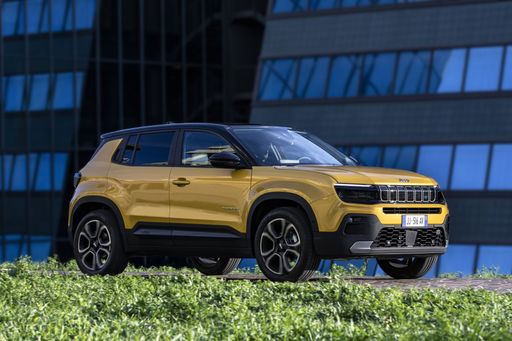
Jeep Avenger
Abarth 500 595 695
The Abarth 500, particularly in its 595 and 695 renditions, captures the spirit of Italian motoring with its compact yet aggressive design. Known for its lively performance and distinctive styling, this little powerhouse is a joy to drive, offering an engaging experience that appeals to enthusiasts. With its rich motorsport heritage, the Abarth 500 embodies the essence of fun and excitement on both the streets and the race track.
details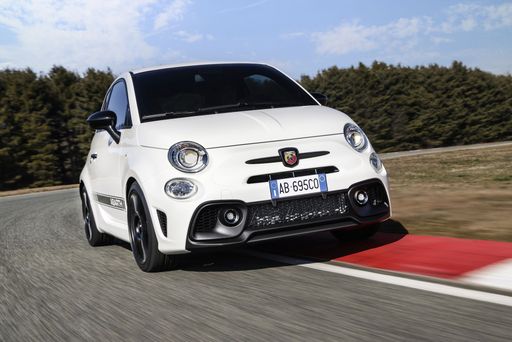
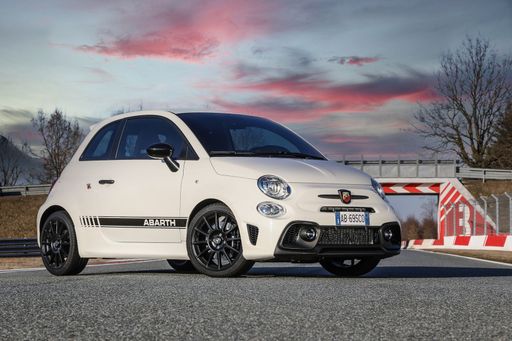
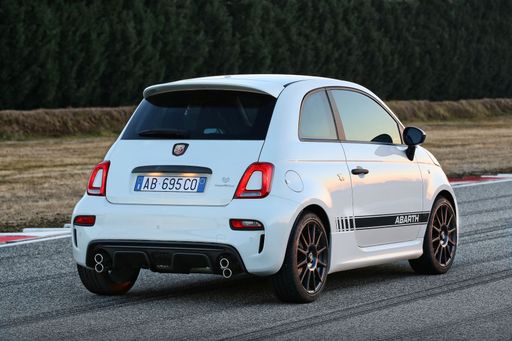
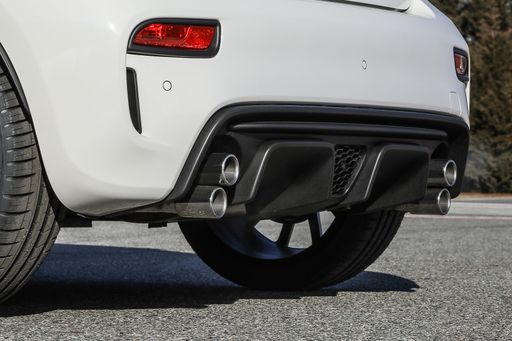
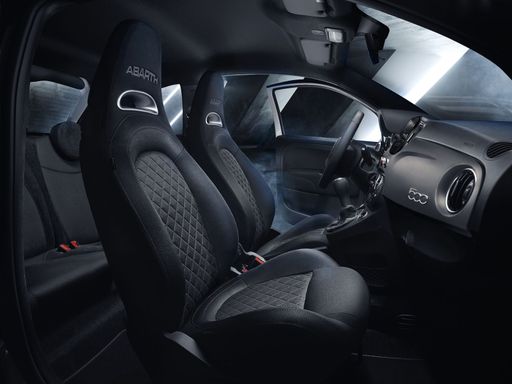
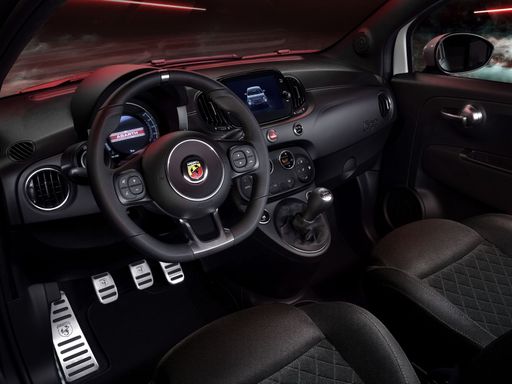
Jeep Avenger
The Jeep Avenger shrinks Jeep's boxy, adventurous styling into a city-friendly electric crossover that looks just as at home on tight streets as it does on muddy weekend lanes. It's a savvy pick for drivers who want go-anywhere attitude without the truck-size ego — practical inside, lively around town and ready to tackle a bit of rough stuff when the mood strikes.
details
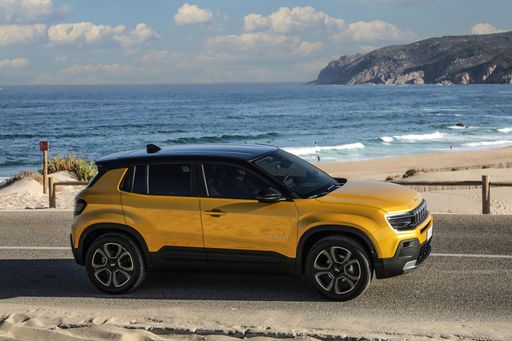



Costs and Consumption |
|
|---|---|
|
Price
32600 - 39400 £
|
Price
21900 - 36900 £
|
|
Consumption L/100km
-
|
Consumption L/100km
4.9 - 5.7 L
|
|
Consumption kWh/100km
17.1 - 18.8 kWh
|
Consumption kWh/100km
15.50 kWh
|
|
Electric Range
242 - 265 km
|
Electric Range
400 km
|
|
Battery Capacity
37.80 kWh
|
Battery Capacity
51 kWh
|
|
co2
0 g/km
|
co2
0 - 129 g/km
|
|
Fuel tank capacity
-
|
Fuel tank capacity
44 L
|
Dimensions and Body |
|
|---|---|
|
Body Type
Hatchback
|
Body Type
SUV
|
|
Seats
4
|
Seats
5
|
|
Doors
3
|
Doors
5
|
|
Curb weight
1410 - 1435 kg
|
Curb weight
1180 - 1520 kg
|
|
Trunk capacity
185 L
|
Trunk capacity
325 - 380 L
|
|
Length
3673 mm
|
Length
4084 - 4088 mm
|
|
Width
1682 mm
|
Width
1776 mm
|
|
Height
1518 mm
|
Height
1527 - 1541 mm
|
|
Max trunk capacity
550 L
|
Max trunk capacity
1218 - 1277 L
|
|
Payload
370 - 385 kg
|
Payload
494 - 502 kg
|
Engine and Performance |
|
|---|---|
|
Engine Type
Electric
|
Engine Type
Electric, Petrol, Petrol MHEV
|
|
Transmission
Automatic
|
Transmission
Automatic, Manuel
|
|
Transmission Detail
Reduction Gearbox
|
Transmission Detail
Reduction Gearbox, Manual Gearbox, Dual-Clutch Automatic
|
|
Drive Type
Front-Wheel Drive
|
Drive Type
Front-Wheel Drive, All-Wheel Drive
|
|
Power HP
155 HP
|
Power HP
100 - 156 HP
|
|
Acceleration 0-100km/h
7 s
|
Acceleration 0-100km/h
9 - 10.6 s
|
|
Max Speed
155 km/h
|
Max Speed
150 - 194 km/h
|
|
Torque
235 Nm
|
Torque
205 - 260 Nm
|
|
Number of Cylinders
-
|
Number of Cylinders
3
|
|
Power kW
114 kW
|
Power kW
74 - 115 kW
|
|
Engine capacity
-
|
Engine capacity
1199 cm3
|
General |
|
|---|---|
|
Model Year
2023
|
Model Year
2023 - 2025
|
|
CO2 Efficiency Class
A
|
CO2 Efficiency Class
A, D, C
|
|
Brand
Abarth
|
Brand
Jeep
|
Is the Abarth 500 595 695 offered with different drivetrains?
The Abarth 500 595 695 is offered with Front-Wheel Drive.
